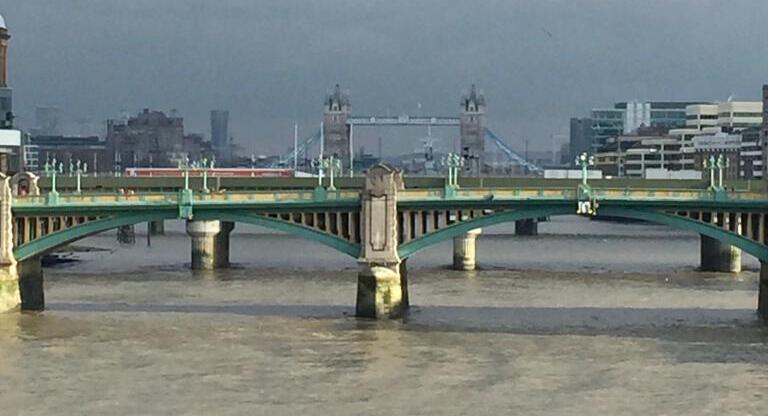Labour’s Limbo
With an election around the corner, the United Kingdom has not yet fully embodied the election campaign spirit. While most of the older traditions in British politics are dwindling, it seems like Brexit was at least able to set a new one: the decision of critical matters exclusively moments before important deadlines. At least in Oxford, there is yet no sign of any momentum building for the upcoming election. And when it is discussed, much to anyone’s lack of surprise, only Brexit is in the agenda. The implications of the December 12th election seem to only revolve around Brexit-related issues, and since June 2016, that is true for all British politics in general. The UK has been reduced to Brexit. And neither the people or politicians care about any other topic, no matter how urgent they might be.
The worst part, in addition to this lack of interest for non-Brexit politics, is that the very own topic of Brexit itself has provoked a staleness over time that dissuades serious public debate on this matter. As a result, torn between simplistic answers, the public opinion becomes increasingly polarised. Furthermore, as this was not enough, both leaders of the two most historic British parties cannot create public consensus: both Boris Johnson (Tories) and Jeremy Corbyn (Labour) are wild cards, further polarising public opinion.
In this context, all possible solutions prove to be difficult solutions. On the table there is BoJo’s finallyapproved deal, a “hard-Brexit” seemingly banned by the Parliament (but who knows), and the undoing of the whole Brexit process. All three have been equally plausible in different moments in time and right now, before the December 12th election, that is again the case. “Brexit has meant Brexit” for three years and a half, but until today, it is still yet to happen. In terms of voting options, Boris Johnson seems to be either in favour of his deal or a hard-flavoured Brexit, so a vote for the Conservative Party will always be a vote for Brexit. Corbyn, on the other hand, is harder to read. With a divided electorate: pro-Brexit traditional working class voters and anti-Brexit left-inclined younger voters, Corbyn’s Labour is in a deadlock. While trying to please both sides, the Labour leader’s position on Brexit is yet to be fully revealed which weakens the party’s position before the coming election. Labour’s limbo confuses voters — if only they knew what was the party’s real stance on Brexit, it would be easier to cast a vote. In fact, polls show that since the end of the past year, the voting intention for Corbyn’s Labour has been declining, probably as a result of this dynamics. This void in the political space has been filled in by the Liberal Democrats, who are completely out of the closet in terms of their anti-Brexit position. The intention to vote for the LibDems has increased roughly ten perceptual points from the end of 2018 until today (source: The Economist, November 2nd-8th 2019 edition). If the election was held today, the Conservative party would win with roughly 35% of the votes, while Labour and the LibDems would respectively receive 25% and 19% of the votes. The interesting question here is how many of these Labour voters would vote for the LibDems instead, if Corbyn was to come out as openly proBrexit. If Corbyn has said in the past that the people had made their decision in June 2016, and that Brexit had to be honoured, his lukewarm position, that inclusively goes back and forth, shows he is paying careful attention to the risk of losing his younger electorate to the Liberal Democrats. Corbyn’s limbo is therefore an important piece of the puzzle in order to determine the results of the coming election. However, if nothing is done until the very last moment, as it has been the tradition, the more likely scenario is a winning Conservative party backing BoJo’s deal. On the other hand, if Corbyn comes out as anti-Brexit, would there be the possibility of a Labour-LibDems anti-Brexit coalition designed to stop the process? It seems unlikely, but the backing of a second-referendum by both parties combined in order to stop a BoJo’s deal does not seem that absurd. To those who plausibly believe, as I do, that Brexit is a strictly political issue and that should have not been decided in a referendum due to the perils of direct-democracy (and let us blame Cameron for thinking otherwise), a second-referendum may be a bad solution. However, I am starting to think that an impasse that has the potential to keep unraveling ad infinitum, causing a centralisation of British politics around Brexit indefinitely, may be a far worse solution than a second-referendum designed to put a stop to a situation that incompetent and polarised political leaders cannot resolve. If a mistake has been made to start with, maybe doing it a second time is the only way to fix the situation. If we want “the people to decide”, we have to be consistent. If this was the avenue already taken, no matter how wrongly so, we need to honour that decision for the sake of consistency: let the people truly decide. Three years ago, they had no idea for what kind of deal they were voting for. Now, three years after the first time they voted, they are in a much better situation to understand the implications Brexit will encompass and the kind of deal it is limited to.
A referendum should have never been a solution on the first place, but maybe is the key to the impasse. We will have to wait for the last moment and see.












